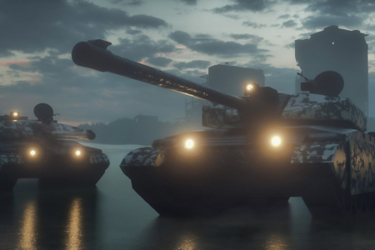Just In Case of War: Back-Integrated Outsourcing

By Louis Garguilo, Chief Editor, Outsourced Pharma

As war is waged by Russia in Ukraine – and forgive me for sticking to our business of outsourcing and supply chains – I’m reminded of comments from last year I had mentally filed away for future reference.
Those comments were made by Scott Zook, SVP Global Manufacturing, Primmune Therapeutics, during an Outsourced Pharma Live event. He was as thorough in his thinking about the viability and reliability of outsourcing as any professional I’ve met.
His key takeaway:
“Ensure you have a back-integrated supply chain.”
Now, as if COVID wasn’t enough, war makes it imperative to revisit Zook’s thoughts.
What Might Happen?

But consider: What if the next military conflict is China in Taiwan?
We outsource a significant amount of development and manufacturing to China – and to Chinese CDMOs established here in the U.S.
Big Pharma continues to locate major facilities and form partnerships in China, and has not been hesitant to project China as its largest market opportunity.
This multi-layered China-derived dependency could significantly impact how our industry reacts to a China conflict.
First, how would we handle any supply disruption? More broadly: Would we take the same indignant (and moral) stand against China for its actions as we are with Russia’s?
COVID, which we were amidst when Zook made his comments at an event titled “Best Practices For Outsourcing Process Development,” crimped our activities in China for months.
However, as reported in these pages, throughout the pandemic, CDMOs there (and here and in Europe, for that matter) remained operational.
But aggression across the Taiwan Straits by China would be a very different circumstance.
Thus, the undesirable considerations of war brings me to Zook’s studied concern for the viability of outsourced development and manufacturing activities.
We just don’t know what might happen was his message. Now we know war might happen.
Back, To Back, To Back
“If you have multiple vendors funneling into your supply chain, my philosophy is at least one of them can back-integrate into the starting materials you need, should there be a fundamental global supply disruption – Suez Canal blockage, COVID shutdowns,” Zook said at the time.
A CDMO (or combination of CDMOs) must “possess the ability to supply and/or manufacture the critical raw materials they need, so as to continue processing the material you need, should some catastrophe occur.”
Zook’s back-integrated supply chain is not to be confused with a similar term in the world of finance – often used as a driver of M&A: backward integration.
That financial term is for a vertical-integration strategy, mitigating external-partner supply risks by bringing the supply chain into your organization. It suggests a biopharma organization buy CDMOs/suppliers to derisk capacity, service, and material interruptions.
Zook’s not interested in buying up any CDMOs. For the most part, I’m quite certain neither are you.
Instead, he says a CDMO possessing “the capability to perform critical chemistries necessary for regulatory starting materials or advanced intermediates,” should always be part of your supply strategy.
“Fine chemical production can be quite a departure from classical GMP chemistries, due to scale, reactive reagents, or specialty equipment,” he explains.
“To be back-integrated is to either be enabled technically, or have demonstrated ability/capacity, to produce critical materials outside of the specific-filed GMP steps.
"Having this philosophical approach to supply allows for pivoting in times of crisis, to an all-in-one supplier to mitigate supply disruptions.
"Like any good hygiene, this approach should be exercised at some point to generate some muscle memory."
How this back-integration gets done, he says, is up to each biopharma to figure out.
“In a weird way,” he says, “you can actually plan upfront for such unknown contingencies without fundamental change in expenses or timing.”
What’s needed, “is a keen sense of awareness.”
As surely demonstrated recently, biopharma should always have an eye towards severe challenges.
“You always have a backup for your vendors,” he said at the time.
“And a backup to that backup. Ultimately, you can even have a third-line backup – which I've been very fortunate in having and had to use in various ways over the years.”
Geopolitical Hedging
Is this back-integrated supply chain something you can try and capture in supply agreements with CDMOs?
Zook agrees you should get as much “backup” and catastrophe mitigation as possible into all agreements.
“The challenge you have with a supply agreement is it’s all fine, until they simply can't source the materials you need, because there's been a global shutdown,” he says. “But can they procure materials when there's no shipping between nations?”
“You can have all the agreements in the universe. It's still not making you API or drug product. I’m talking about another layer of paranoia I guess I bring to my role,” he says with a smile.
“I imagine things happening, not to be doom-and-gloom, but so if something does occur – and COVID did occur – you are still prepared, you already have plans.”
Zook says you can call this “geopolitical hedging of the supply chain”:
Multiple built-in redundancies in critical raw materials – for example in biomanufacturing, items like media or buffers. “Super-trace minerals” can be a fundamental challenge.
However, as we finished up the discussion, Zook said, “This does not mean being stupid about it, or spending all this money trying to prevent a thing that is impossible to prevent.”
“It is continuously keeping an eye out for circumstances.”
Unfortunately, that includes pandemics, and wars.
